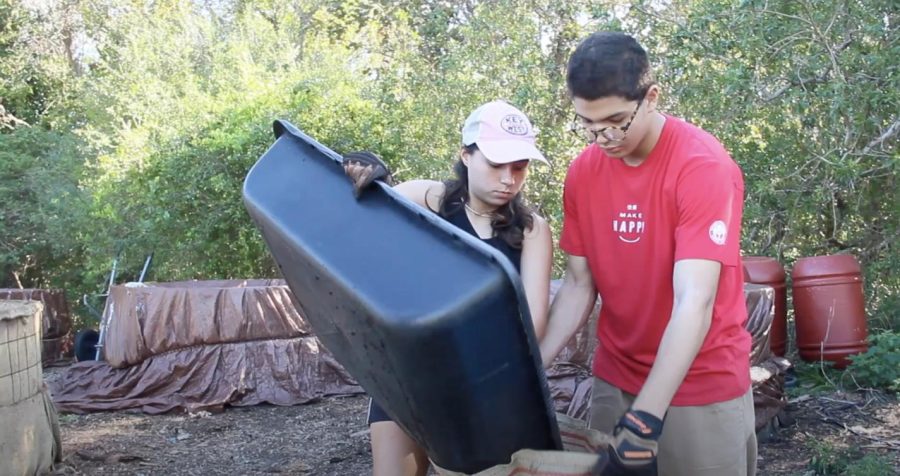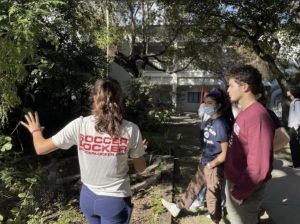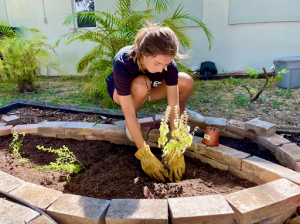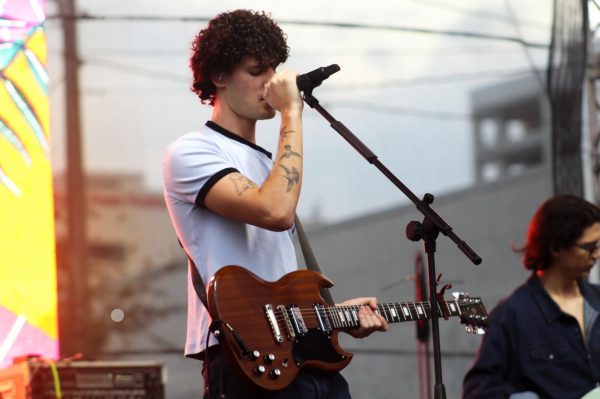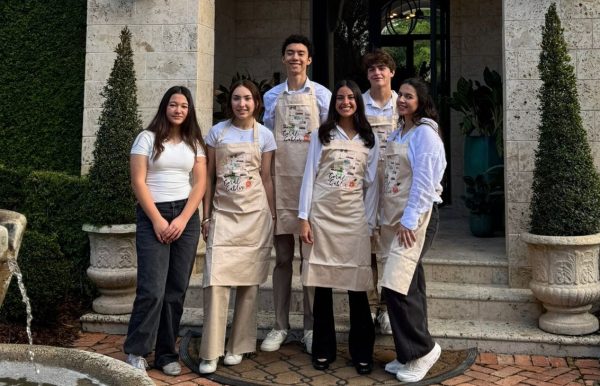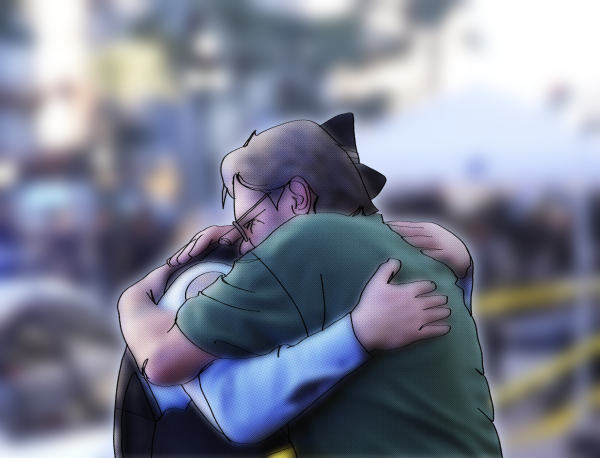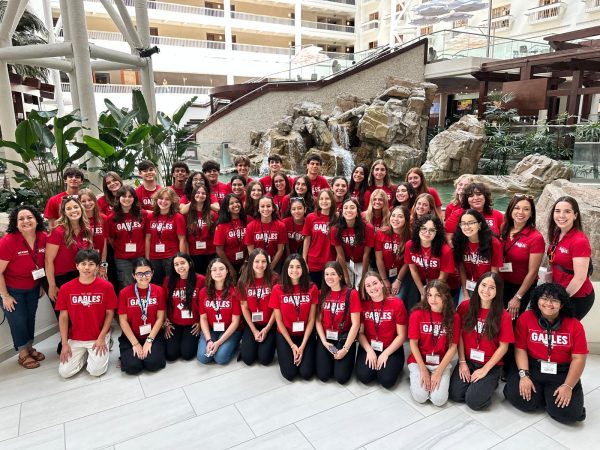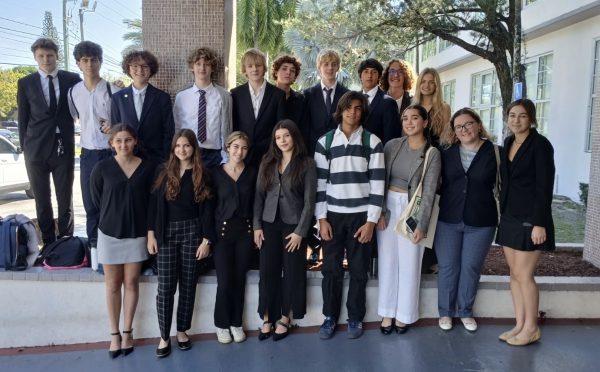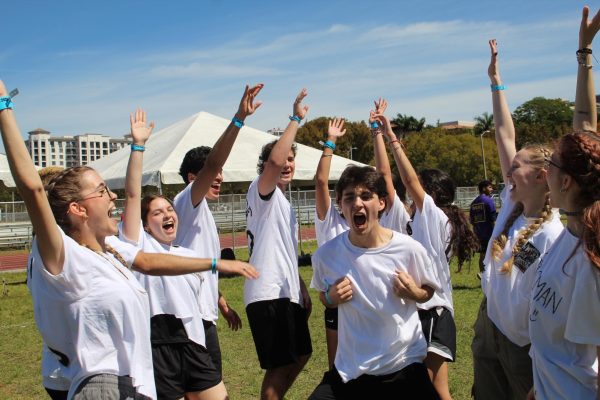Gables Students Get Hands-on with Composting
Students collect soil to take back to the gardens at Gables after spending a day learning about composting with Zero Waste Culture.
Composting is the planet’s natural method of recycling matter, meaning something that was once a living thing can create rich, live soil. On Feb. 25, eight Coral Gables Senior High students attended an event organized by the Gables Garden Project in collaboration with A Zero Waste Culture to learn more about this process. Visiting a composting site in Key Biscayne, volunteers aimed to understand the composting operation, hoping to bring the soil back to our garden at Gables.
Through the Garden Project, this event was organized to allow volunteers to explore how compost is made and encourage those to volunteer in their own communities with the hope that reducing food waste through composting becomes as simple as throwing a wrapper in the trash.
An expert on composting and avid composter himself, Cassidy Fry came out and gave students an overview of what truly occurs when producing compost, emphasizing the value of the final product. Throughout Fry’s lecture, he addressed how the procedure begins with the inclusion of brown matter such as sticks to account for carbon, a necessary ingredient in the mixture. Green matter is then added through fruits and vegetables, providing nitrogen to the blend. This provides an ideal environment for the bacteria and fungi to grow and ultimately, turn into rich compost.
“What I liked most about this event was how interactive it was and how engaging the speaker was. It was amazing to think of most things on our Earth as ‘alive’ rather than dead, that’s what the speaker really emphasized. Anything that was once a living thing can be composted until it is amazing, rich, alive soil,” senior Lucia Chico said.
Fry emphasized how compost produces nitrate, a chemical in compost and synthetic fertilizers that is known to be effective in promoting plant growth. Often comparing it to “gold,” Fry highlighted the impact compost has in enriching plants. Taking his time to provide a detailed explanation, Fry worked to promote this small but effective sustainable practice to each student.
“You could tell at the event that everyone was very engaged in getting the fertilized soil to help our garden grow as beautifully as it can. I really enjoyed seeing everyone work together to help our environment,” freshman Olivia Russo said.
After students were introduced to the method, the hands-on activity started. Students shoveled compost out of the bins and began sifting the mixture to create “finished compost,” eliminating clumps of tree bark and other organic matter so the nutrients in the soil can be easily absorbed by plants. In order to bring the finished compost to gardens around Gables, volunteers first sifted the fertilizer, which was then poured into bags and loaded onto a truck, where it would then be transported to the school.
“We will be using this sifted compost soil mainly for our produce garden to help give the plants more nutrients. We will also use some of the composted soil to help some plants in our butterfly and mental health gardens prosper,” senior William “Trip” Beardslee said.
A Zero Waste Culture provides composting services for over 60 families in Key Biscayne families, who go every Saturday to the Farmers Market and drop off their food scraps for composting. However, the composting process does not only happen in Key Biscayne. Our Gables community is working to build a system of composting. Gables’ Project GREEN and the Green Coalition plan to take action from behind the kitchen, collaborating with cafeteria staff and students to build a better environment on the local scale.
Consider signing up to volunteer in assisting the cafeteria staff and reducing the waste produced.
Your donation will support the student journalists of Coral Gables Senior High School. Your contribution will help us cover our annual website hosting costs.


